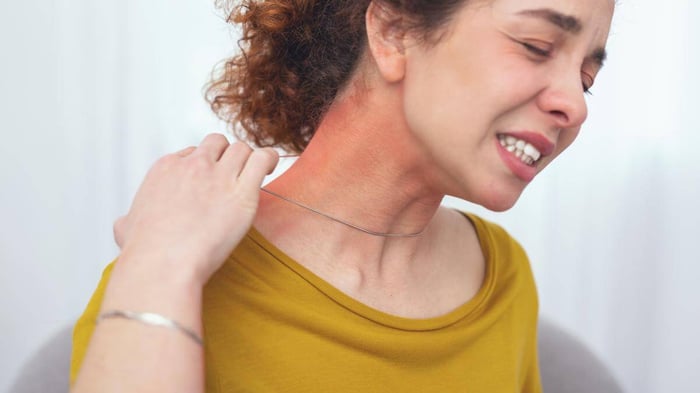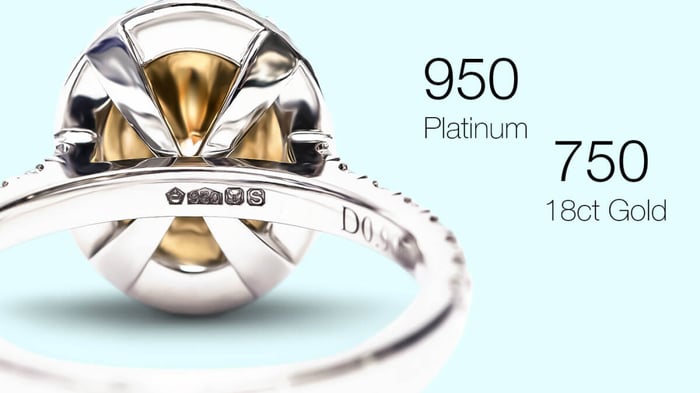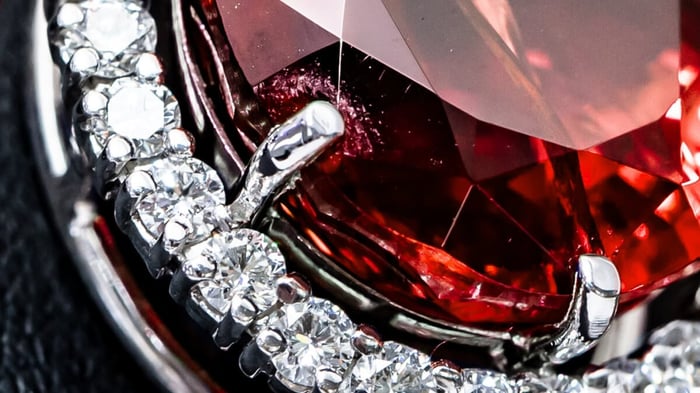What Jewellery Allergies Can You Get From Your Jewellery? What Can You Do About It?
Do you suffer from jewellery allergies? Are you worried that your jewellery might be making you sick? Read on to find out more about skin sensitivity and jewellery and what you can do to avoid problems with your jewellery.
Jewellery allergies are sometimes confused with atopic dermatitis. Although, in most cases, it does appear as an atopic condition at first glance, dermatitis may develop into a more severe condition later.
As mentioned earlier, a jewellery allergy manifests itself as dermatitis. But in addition to the itching and scratching, a secondary infection may develop that could lead to an infection in the deeper tissues. And don't forget even if the initial itching and scratching treatment disappear, it will only go away if the damaged area is healed. So be sure to take the proper medication and treatment to the affected area.
If you notice any skin sensitivity, please check with your pharmacist or GP for their advice as to how to treat the problem. This article will describe how skin sensitivity arises, the causes, and what to look out for when buying jewellery to avoid problems.
Metal Allergies
Allergic reactions to gold and silver jewellery are the most common. The problem is not the silver or gold itself but the metals mixed in to alter the properties of the precious metal.
The nickel content in some jewellery metals can cause allergic reactions to different people with varying degrees. Some people react to the nickel in jewellery metals, and some don't. In general, the higher quality the precious metal, the less likely it is to contain nickel in sufficient quantities to cause an allergic reaction. The most common manifestation is a rash on the skin. The most problematic metal used in jewellery is silver, as this tends to have a relatively high proportion of nickel. At All Diamond, our white metals are either white gold or platinum, neither of which will cause skin sensitivity in most people, even those with skin sensitivities to less expensive metals.
0.25ct Ruby & 0.15ct G/SI Diamond Necklace in 18k White Gold

€783,95
A delicately pretty ruby, hand-cut by our UK craftsmen and set in 18k white gold, is surrounded by sparkling G/SI quality diamonds to complete this perfectly petite pendant that will bring a feminine finishing touch to your special someone's ensemble.… read more
The second problematic metal that is mixed with precious metals is copper. Most commonly found mixed with gold to create rose gold. Although in the amounts used to make rose gold, copper is not a problem for most people, if you have a sensitivity to copper, it might be worthwhile to choose a metal other than rose gold.
As a rule, sensitivity to metals is found in lower quality jewellery so sticking with high quality sterling silver, platinum or gold that is 14K or higher is usually the best choice.

Allergies To Gemstones
Some people who are allergic to gemstones have a skin rash in which the area becomes inflamed and irritated. The allergic reaction comes from impurities in the gems such as nickel, cobalt or chrome. These impurities can be found in gemstones such as agate, chalcedony, malachite or in rocks that are often considered gemstones such as jade or lapis lazuli. Remember that in most cases, these rashes are caused by contact with the area of the affected jewellery.
In fine jewellery such as that sold by All Diamond, a contact allergy from diamonds, emeralds, sapphires etc., are, to all intents and purposes, impossible. These gems either do not contain allergens or are present in such tiny proportions that they will not cause problems for even the most sensitive skin! If you have sensitive skin, do not wear semiprecious gemstones – wear only fine precious stones such as diamonds!
Other Types Of Skin Sensitivity
Some people find that their skin reacts to what they think is the precious metal used in their jewellery, but the real cause is chemicals that transfer to their jewellery from everyday life. This effect most often happens with rings and bracelets. What is happening is that chemicals such as detergents from washing dishes or laundry become trapped between the jewellery and the skin. These chemicals might cause no problem in regular contact, but when they are trapped and rubbed into the skin for extended periods, sensitivity arises.
If you find that a ring or bracelet is causing problems try taking off the jewellery before getting your hands wet and not replacing it until you have thoroughly washed and dried your hands and wrists. Also, before wearing the jewellery again, wash and dry the item(s) thoroughly.
Dentine Malaise Allergies
This type of metal allergy is rare and occurs only in people who have dental problems. Dentine malaise results when the dentine - the hard outer covering of the tooth - is eaten away by acid. For people lacking dentine, this can result in severe and even life-threatening problems. People with severely reduced dentine levels may be unable to wear any metal, including stainless steel, titanium, or some types of gold.
Hypoallergenic Precious Metals
If you think you're allergic to jewellery, make sure you look for jewellery made out of non-allergenic metals. This type has a lower chance of causing an allergic reaction, especially if you wear the jewellery for an extended period. You may also want to keep an eye on yourself when you wear jewellery, particularly if you have sensitive skin.
Hypoallergenic metals contain little to none of the nickel that is the cause of problems for most people with metal allergies.
Gold is an obvious choice, but avoid low-grade gold. Stick to 14K or better. While metal is mixed with gold to make it hard enough to use in jewellery and to enhance the colour, nickel is not a common choice. In 14K or better gold, any nickel present is so minuscule that it seldom causes problems.
Sterling silver (sometimes marked as .925 silver) is usually hypoallergenic; again, avoid lower grades of the metal as this may have enough nickel to cause problems.
Platinum is an excellent choice for hypoallergenic jewellery. It is more costly than other metals used in jewellery; it looks great. It is very hardwearing, and almost nobody has sensitivities to platinum, so it is often used in surgical implants!
All Diamond And Hypoallergenic Precious Metals
At All Diamond, we use high-quality precious metal alloys, and so it is unlikely that any of our jewellery would cause problems for the wearer. We do not use silver in our jewellery; if you have sensitivities, choosing our platinum jewellery is the safest choice. In most case, jewellery wearers are already aware of sensitivities and know what to avoid.
We recommend that whenever jewellery is worn in close contact with the hands, such as bracelets or rings, the jewellery is removed before using detergents, household chemicals, or other contaminants. This precaution protects both the wearer and the jewellery. If you have any concerns about skin sensitivity, please use our online chat service to check with our support team before making a purchase, and they will be able to give good advice to help you make the best choice for your needs.




